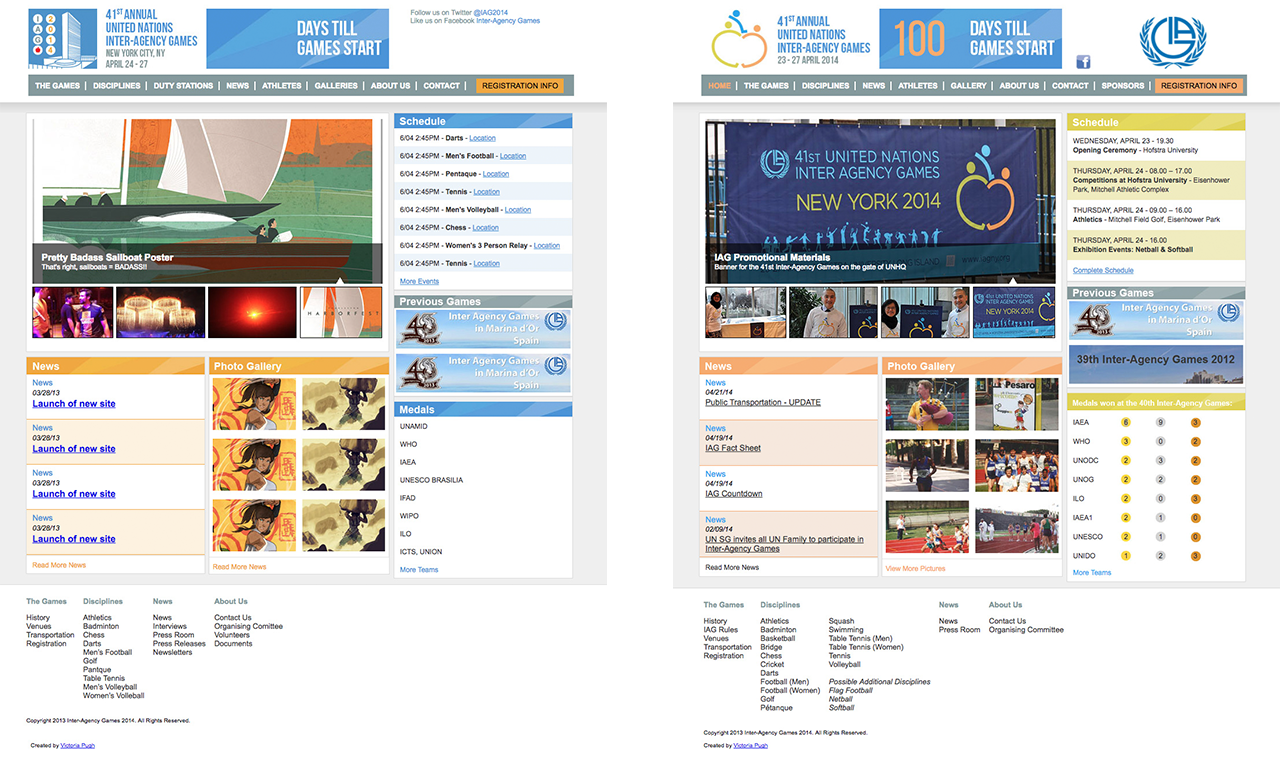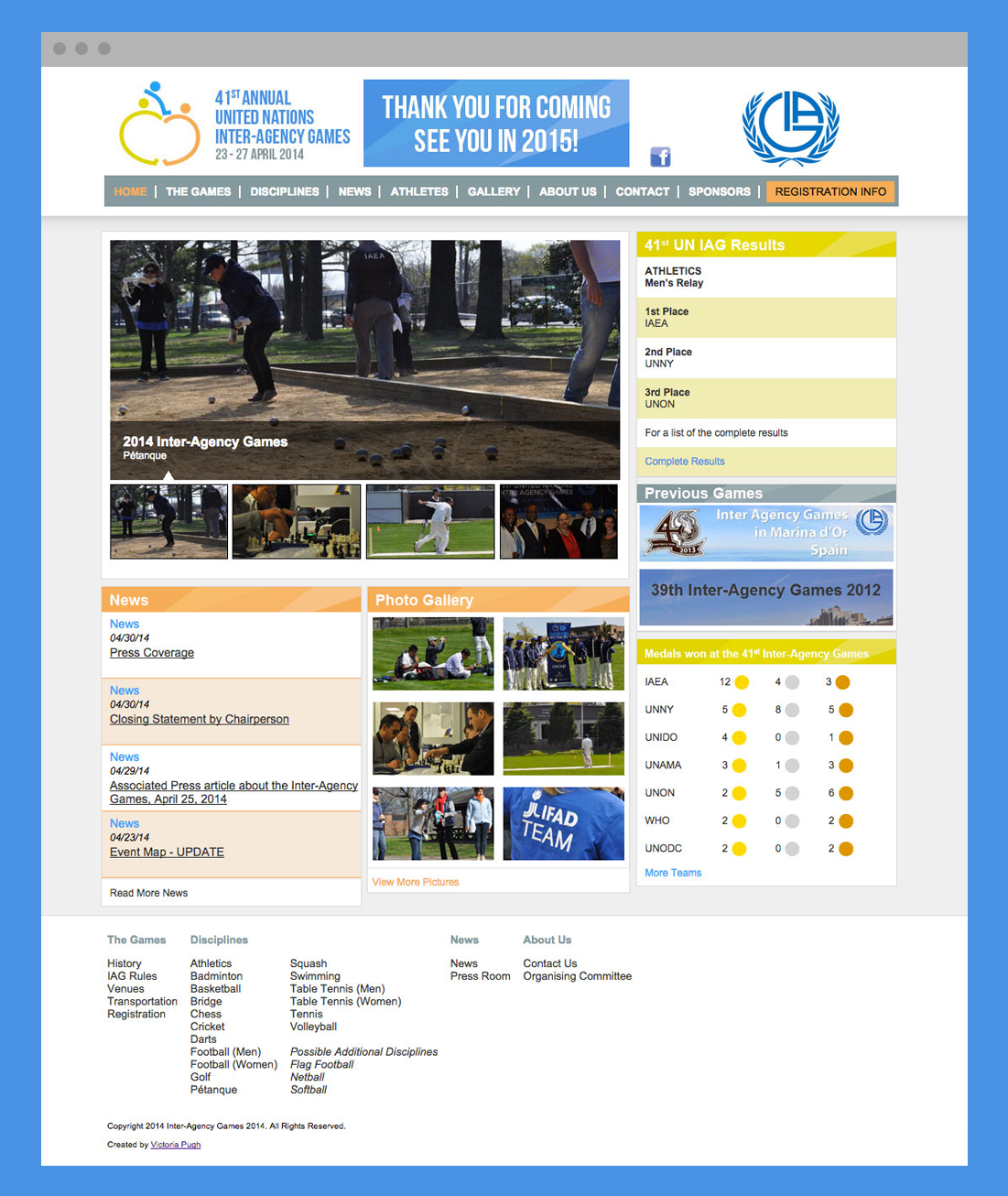Background
The United Nations is an international organization founded in 1945. It is currently made up of 193 Member States. The mission and work of the United Nations are guided by the purposes and principles contained in its founding Charter. Due to the powers vested in its Charter and its unique international character, the United Nations can take action on the issues confronting humanity in the 21st century, such as peace and security, climate change, sustainable development, human rights, disarmament, terrorism, humanitarian and health emergencies, gender equality, governance, food production, and more.
In 1971, UN Geneva organised the first multi-institutional sports competition in Champéry, Switzerland. Ten organizations of the UN System with offices in Europe participated. The Games included the following disciplines: chess, football, table tennis, tennis and men's volleyball. Thus the United Nations Inter-Agency Games were initiated and the principle of alternating the venue and the responsibility for the organization of the Games among the UN organizations in Geneva, Rome, Vienna and Paris were adopted. General Rules for the Games were adopted and a Control Commission established to assure their adherence.




